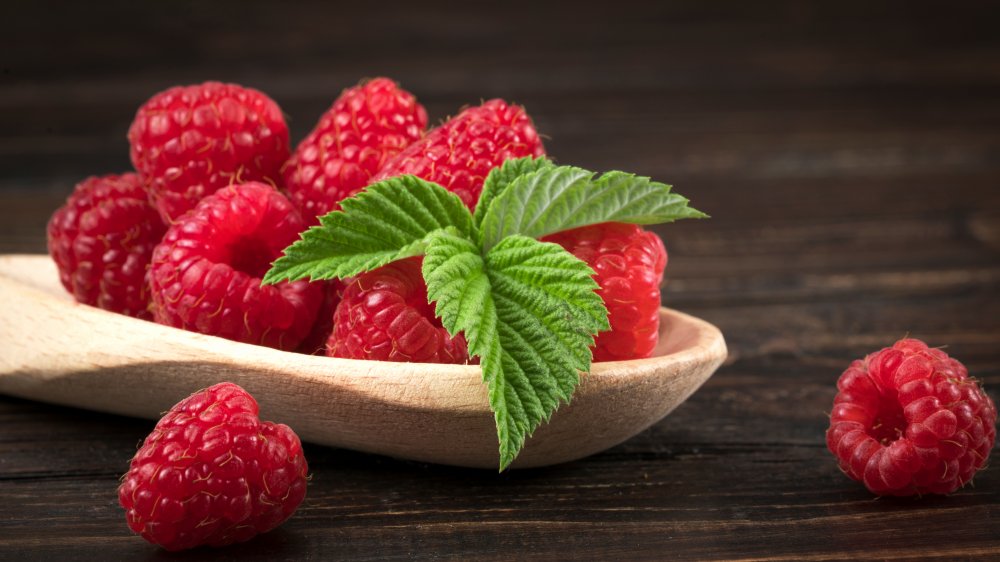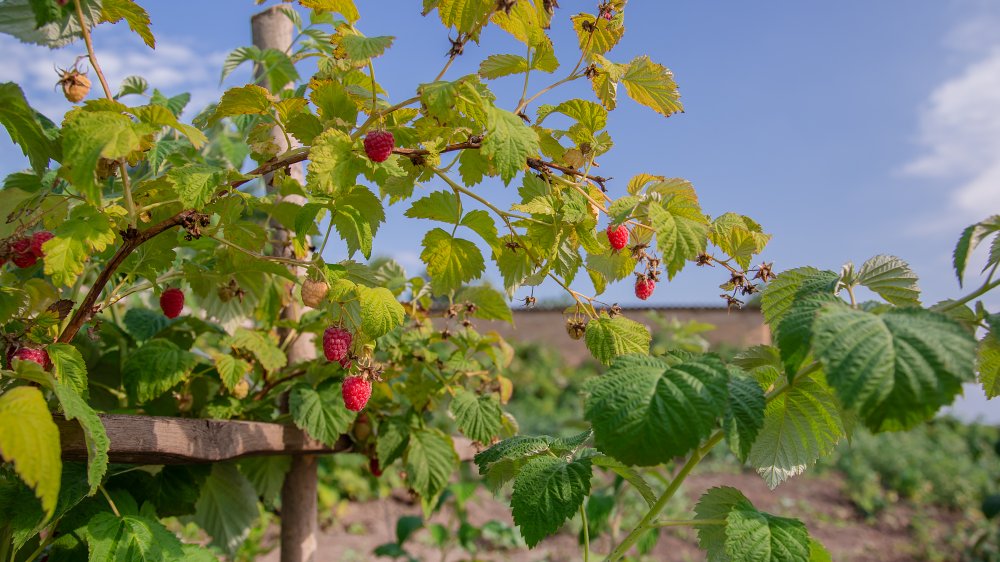Why Are Raspberries So Expensive?
Raspberries are known for their sweet-tart flavor and jewel-like ruby-red fruits — ideal for everything from yogurt toppings to homemade preserves. They're also renowned for their health benefits: According to Medical News Today, raspberries pack a load of antioxidants, including vitamins C and E, lutein, zeaxanthin, beta carotene, lycopene, selenium, and flavonoids, plus an impressive eight grams of fiber per cup. They also provide manganese, B vitamins, copper, iron, and folic acid (via Organic Facts).
But raspberries don't come cheap. The North American Raspberry & Blackberry Association reported after a 2018 survey that raspberries sell for an average price of $6.46 per pint, with 58 percent of growers charging between $5 and $8 per pint — that equates to a hefty $8.42 average per pound. And, even though raspberries are best bought from local sources (thanks to their short shelf life) and the United States is the world's third-largest grower, much of that is exported to Canada, while most of the U.S. supply is sourced from Mexico (via Agricultural Marketing Resource Center).
The reasons for raspberries' high costs
Raspberries are so pricey for reasons beyond importing costs. News.com.au explains that they need to be picked by hand rather than harvested by machines, and their seasonal nature limits the times of the year they can be picked at all, so growing them in greenhouses or hydroponically further increases the price.
However, recent technological developments may change that. In the U.K., farmers fear Brexit will decrease the numbers of migrant workers who pick raspberries, and rising labor costs mean that each kilogram of hand-picked raspberries costs one to two British pounds, or half of the total production costs (via The Guardian). Therefore, the paper reported in 2019, a robot had been developed to pick 25,000-plus raspberries per day; its "final version" was expected to go into production in 2020.
Other nations are hopping aboard the production train, too. Fresh Plaza notes a current "pilot project" in Abu Dhabi, the United Arab Emirates' first attempt at growing its own raspberries, to cash in on the fruit's popularity in the country and its solid profits (despite being "notoriously labor-intensive and sensitive to heat").
Regardless of their origin, there are ways to maximize the flavor of these expensive fruits. Healthline recommends eating them within one or two days of purchase, buying at harvest time (summer and/or fall), and picking firm (not crushed or moldy) fruits. Or just buy frozen to enjoy year-round!

